How FIFA Makes Money
Are you a football fan who has been curious about how FIFA, the international governing body of football, makes money? If so, look no further. This blog post will discuss where FIFA gets its revenue from and how it uses those funds. Learn how one of the world’s most powerful sports organizations manages its finances, from ticket sales to sponsorship deals.
Along with providing an overview of the sources of income and some interesting facts on their budgeting habits, We will also give readers tips on making wise decisions in personal finance to apply what they have learned today. So get ready to boost your financial IQ - let's explore where FIFA finds its source of special funding.
FIFA and its revenue streams

FIFA, the Fédération Internationale de Football Association, is the governing body of football worldwide and was founded in 1904. Its membership consists of 211 national associations that oversee and manage their various domestic leagues and tournaments.
FIFA’s main source of income is television broadcasting rights - they have deals with broadcasters around the world to show games on TV and streaming services like YouTube Sports and ESPN+. Other sources of revenue include ticket sales, sponsorship deals, corporate hospitality events, and merchandise sales.
To fund its activities, FIFA also receives grants from major corporations such as Nike and Adidas, which are associated with the organization somehow. These grants help support various international tournaments, such as the World Cup. The organization also receives a portion of the profits from selling officially licensed video games and merchandise.
FIFA generates more income through its marketing efforts. This includes advertising campaigns on websites, radio stations, and print media. They also generate revenue by charging fees for certain services, such as stadium use or team registration.
FIFA's Budgeting Habits
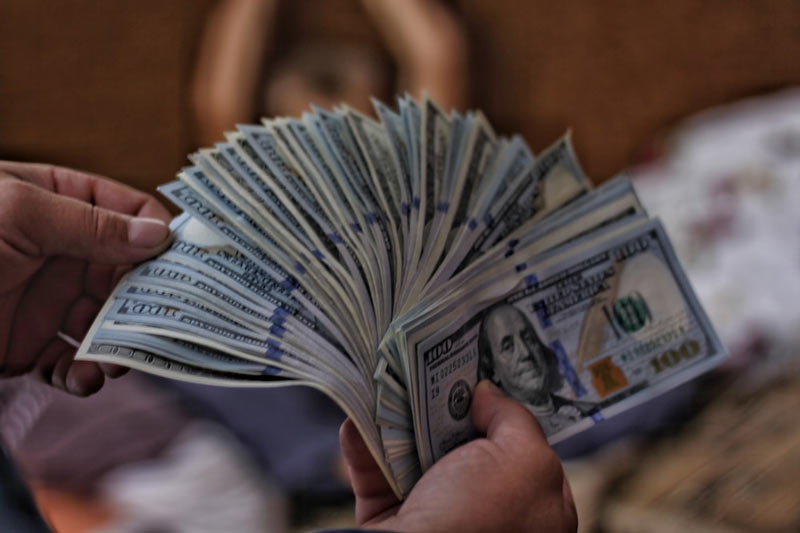
FIFA’s budget is managed carefully to cover all expenses related to international football events and administrative costs. The organization sets aside funds for development projects and youth initiatives in areas worldwide where football is popular, but the infrastructure is lacking. FIFA has invested heavily in technology over recent years - their goal being to improve the fan experience and make the game more accessible.
FIFA also sets aside funds for travel, marketing, and legal fees. They have strict rules to ensure their money is spent responsibly and judiciously. This includes restrictions on salaries and other forms of compensation and using transparency measures to keep track of spending.
How Television Rights Generate Income
Television rights are a major source of income for FIFA. Broadcasting companies worldwide will pay large sums for exclusive access to televise games from international tournaments such as the World Cup and the UEFA Champions League. These broadcast deals can be incredibly lucrative and are usually for several years, guaranteeing FIFA a steady revenue stream.
Regarding broadcasting fees, many governments provide subsidies to help fund these events. This helps reduce costs and allows FIFA to use those funds toward other projects or initiatives.
Brand Partnerships & Sponsorship Deals
FIFA has partnerships with several big-name brands, including Nike and Adidas. These companies will pay to display their logo on players' jerseys at tournaments worldwide. They also provide grants for development projects or youth initiatives related to football.
Sponsorships are another source of income for FIFA. Companies such as Coca-Cola, Mcdonald's, and Visa will pay large sums for exclusive access to advertise their products during international tournaments. This allows them to reach a global audience and generate more sales.
FIFA also receives funds from corporate hospitality events where wealthy individuals and corporations can purchase tickets for special games or other exclusive experiences in exchange for a donation.
Merchandise Sales & Licensing Agreements
FIFA also makes money from selling official merchandise such as jerseys, hats, and other memorabilia. They have licensing agreements with companies that create video games or app versions of FIFA-sanctioned tournaments. These agreements provide additional revenue for FIFA and help promote the sport to a wider audience.
FIFA generates revenues from various sources, including television broadcasting rights, ticket sales, sponsorships, corporate hospitality events, merchandise sales, and licensing agreements.
This combined help generate enough income to keep the international football organization running smoothly and promote the sport globally. With careful budgeting and transparency initiatives, FIFA is able to use its resources to fund development projects and youth initiatives around the world.
This helps football grow in popularity and brings more attention to players, teams, and tournaments alike.
Ticket Sales & Corporate Hospitality
FIFA makes money from ticket sales for its annual international tournaments. This includes individual tickets and corporate hospitality events allowing wealthy individuals and corporations to purchase exclusive experiences in exchange for donations.
Ticket sales are an important source of income for FIFA, helping them cover travel and other expenses associated with running these tournaments.
FIFA also generates revenue from corporate hospitality events, where companies can purchase tickets or access exclusive games or experiences in exchange for donations.
These funds help FIFA cover administrative costs such as salaries, legal fees, and marketing efforts.
Matchday Revenue from Stadiums
Matchday revenue is generated from ticket sales, food and beverage sales, and merchandise sold at FIFA's stadiums worldwide. This revenue covers operating expenses such as player salaries, staff wages, and marketing costs.
FIFA also utilizes a sophisticated system of security measures to ensure fan safety during games. They have strict regulations that require all stadium personnel to be properly trained before they are allowed to work at a matchday event. This helps reduce the risk of accidents or other incidents occurring during the game.
To ticket sales, FIFA also generates income from advertising partnerships with companies who pay for their logo or advertisement to be displayed at matches. These funds help FIFA cover overhead costs associated with running international tournaments and promote the sport to a wider audience.
FAQS
How much money does FIFA make?
FIFA makes money from various sources, including ticket sales, corporate hospitality events, sponsorships, merchandise sales, and licensing agreements. The organization has estimated to bring in approximately $5 billion in annual revenue.
Who is the richest in FIFA?
FIFA is a non-profit organization and thus does not have any individual shareholders or owners. Revenues from television broadcast rights, ticket sales, sponsorships, corporate hospitality events, merchandise sales, and licensing agreements fund the governing body.
Who is the most successful in FIFA?
The most successful team in FIFA is Brazil, which has won a record five World Cup titles and is one of the most decorated teams in international football. They have also been crowned champions of the FIFA Confederations Cup three times and have won numerous continental titles. Other top teams include Germany, Argentina, France, Italy, Spain, and England.
Conclusion
FIFA is an organization that has several ways to generate revenue from its activities. FIFA's financial resources come from various avenues, from broadcast and sponsorship deals to merchandise sales. The scale and scope of these initiatives have enabled the governing body to reach huge success in international football, not just on the field but also off it. However, the increasing pressure on FIFA to operate ethically and responsibly has caused some scrutiny over its funds and lending practices.
On this page
FIFA and its revenue streams FIFA's Budgeting Habits How Television Rights Generate Income Brand Partnerships & Sponsorship Deals Merchandise Sales & Licensing Agreements Ticket Sales & Corporate Hospitality Matchday Revenue from Stadiums FAQS How much money does FIFA make? Who is the richest in FIFA? Who is the most successful in FIFA? Conclusion
By Kelly Walker : Aug 11, 2023
Investment Considerations and Strategies Following a Debt Ceiling Resolution
Observing the financial markets recently would reveal a fascinating dynamic. Explore the best investments for debt ceiling deals in the U.S. in this article.
Read More
13299

By Kelly Walker : Feb 04, 2023
Max Life Insurance Review 2023: Everything You Need To Know
Max Life Insurance offers short-term and kid life policies. Although it offers a wide variety of plans, only a subset is accessible to customers outside India.
Read More
2082

By Kelly Walker : Mar 29, 2023
Advantages And Rewards Of Using A Victoria's Secret Credit Card
Victoria's Secret Credit Card offers various advantages and rewards, including exclusive access to sales and events, free shipping on select purchases, bonus points for every dollar spent, birthday gifts, and early access to new product launches.
Read More
7500

By Rick Novak : Feb 04, 2023
Tax Preparer vs. Software: How You Should Choose
You should use caution in selecting the preparer since you will be liable under the law regardless of who prepares your tax return
Read More
11520

By Rick Novak : Feb 04, 2023
Short Tax Year: How To Save Money In The Short Term?
A fiscal year that concludes before December 31 is considered a short tax year. Taxpayers may save money in the long run if the tax year is shortened, even though they may have to pay more taxes at certain points.
Read More
10095
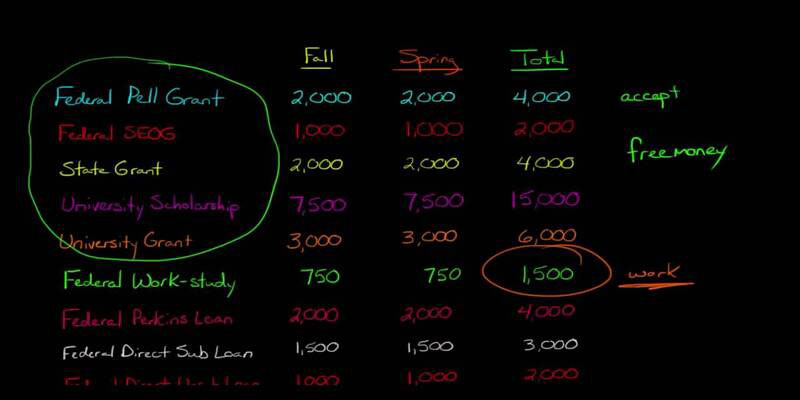
By Kelly Walker : Mar 30, 2023
How to Read the Letter Offering You Financial Aid
A student's financial aid eligibility and the amount of aid they will receive are outlined in an award letter. The document details the terms and conditions of several financial aid forms, such as grants, loans, work-study, and scholarships. Making educated decisions about paying for college and avoiding unexpected fees or debt requires a thorough understanding of the information provided in the award letter.
Read More
10220

By Kelly Walker : Mar 27, 2023
Best Health Insurance for Self-Employed
Confused about which health insurance plan to pick? Don't worry. We have you covered! Learn the ins and outs of healthcare coverage specifically tailored to self-employed individuals.
Read More
4415
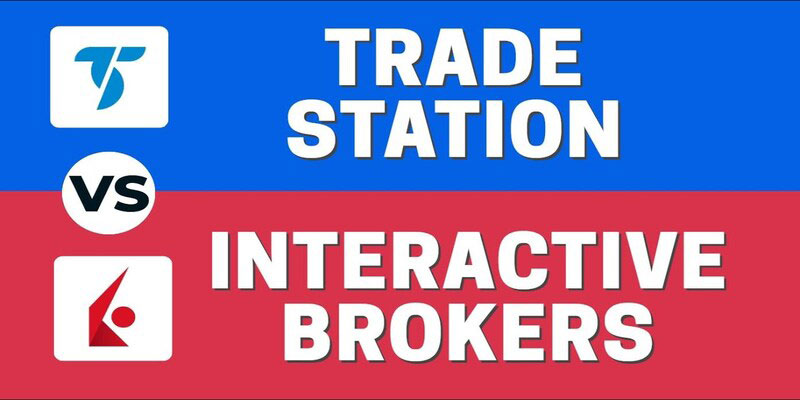
By Kelly Walker : Mar 29, 2023
Review Of The Hilton Honors American Express Card 2023
The Hilton Honors American Express Card is a co-branded credit card that allows cardholders to earn rewards and benefits for their stays at Hilton hotels. In this article, we will cover the various benefits and features of the card, the Hilton Honors Rewards program, how to use the card to maximize rewards, and how it compares to other hotel and travel rewards credit cards.
Read More
2209
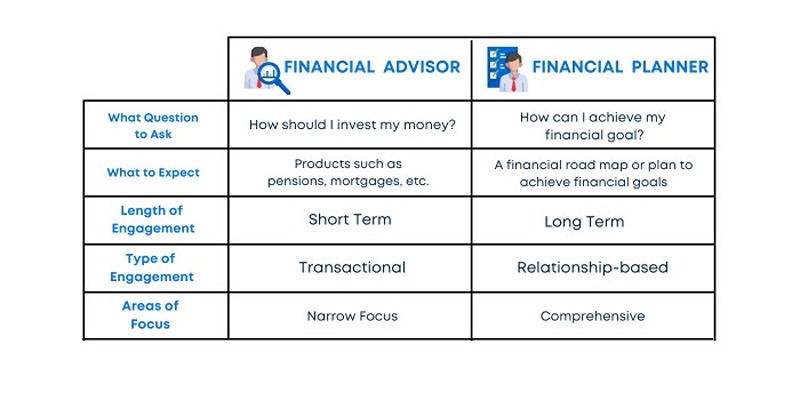
By Kelly Walker : Mar 30, 2023
Financial Planner vs. Financial Advisor: What’s the Difference?
Have you ever wondered about the difference between a financial planner and a financial advisor? Find out here! Learn which type of professional to turn to for help so that you can make informed decisions about your finances.
Read More
1576

By Rick Novak : May 29, 2023
Best Sales Training Programs
Looking for a sales training program to expand your business knowledge? Get informed and discover the best programs to meet your needs.
Read More
13515
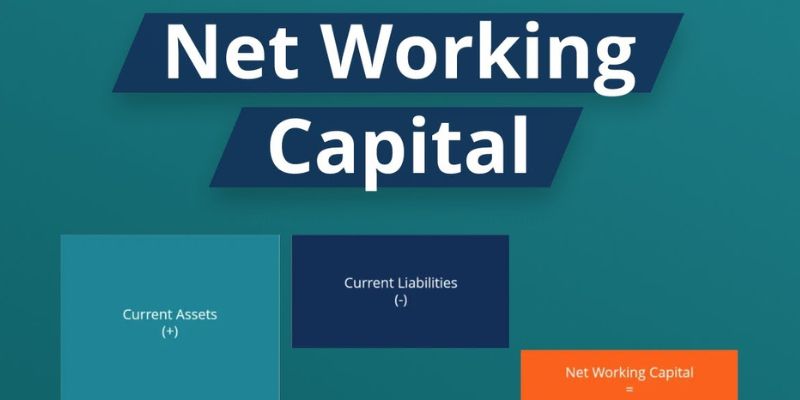
By Kelly Walker : Jun 02, 2023
What Is the Net Working Capital Ratio?
Understanding the net working capital ratio is essential to managing your finances and accurately evaluating investment opportunities. Learn how to calculate it and why it matters with this guide!
Read More
14036

By Kelly Walker : Jul 30, 2023
Are We in a Bull Market or a Bear Market?
Tired of wondering why stocks and markets fluctuate so much? In this blog post, we’ll explain what separates bear from bull markets and how you can determine which type of market you're currently participating in.
Read More
10345